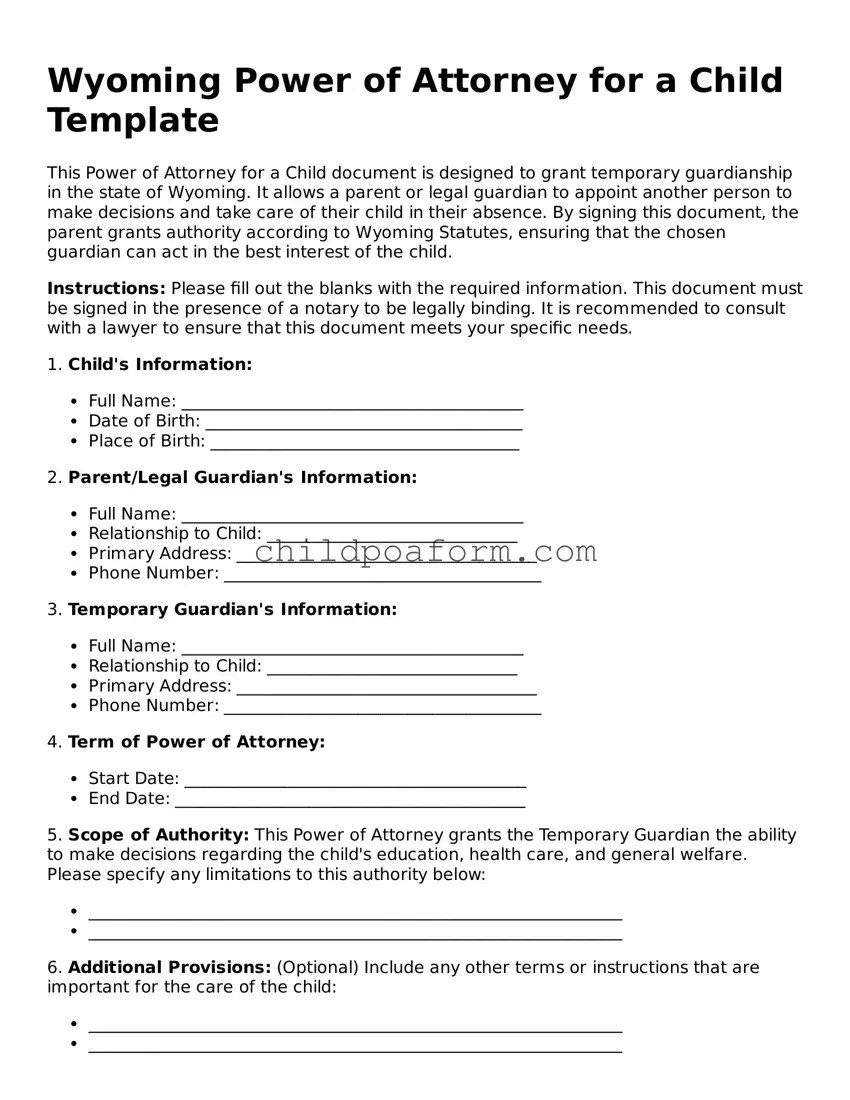Instructions on Utilizing Wyoming Power of Attorney for a Child
Securing a Power of Attorney (POA) for a child in Wyoming is an important step in ensuring that an adult can lawfully make decisions on behalf of a minor. This may include decisions about healthcare, education, and general welfare. Filling out the Wyoming Power of Attorney for a Child form requires attention to detail to ensure that all the necessary information is provided accurately. The process, while straightforward, must be completed correctly to be valid. Here's a step-by-step guide to help you through the process.
- Begin by accurately reading through the form to understand all the sections and information required.
- Fill out the date at the top of the form, ensuring it is the current date.
- Enter the full legal name(s) of the parent(s) or current legal guardian(s) granting the Power of Attorney in the designated space.
- Provide the full legal name of the adult who will be designated as the attorney-in-fact, or the person receiving the Power of Attorney.
- Clearly write the child's full legal name and date of birth in the respective fields to identify whom the form concerns.
- Include a detailed list of powers being granted to the attorney-in-fact. This should cover areas such as healthcare decisions, educational matters, and authority to travel with the child. Be as specific as possible to avoid any confusion.
- If there are any specific powers not granted, details of these exceptions should be listed clearly on the form.
- Specify the start and end dates for the Power of Attorney. Remember, the Power of Attorney cannot exceed a period of six months in Wyoming, unless it's renewed.
- Both the granting parent(s) or legal guardian(s) and the designated attorney-in-fact must provide their signatures and print their names before a notary public to validate the POA.
- Ensure the form is notarized. This typically involves both the grantor(s) and the attorney-in-fact signing the form in the presence of a notary public, who will then also sign the form and may affix a seal.
After the form is filled out and notarized, it's essential to distribute copies appropriately. The original should be kept in a safe place, while copies should be given to the attorney-in-fact and any other relevant parties, such as medical or educational institutions. This ensures that the attorney-in-fact can act on behalf of the minor child when necessary. Remember, the Power of Attorney can be revoked at any time by the parent or legal guardian, as long as the revocation is in writing and notarized.
